Cinema-related professions

The film industry has always attracted and continues to attract the attention of creative people, but this is due not only to high fees for this or that work, but also to the popularity of numerous professions. Usually, whole groups of people are present on the set, and to make, for example, one hour-long film, actors and other dozens, and sometimes hundreds of specialists on the set have to work for months.
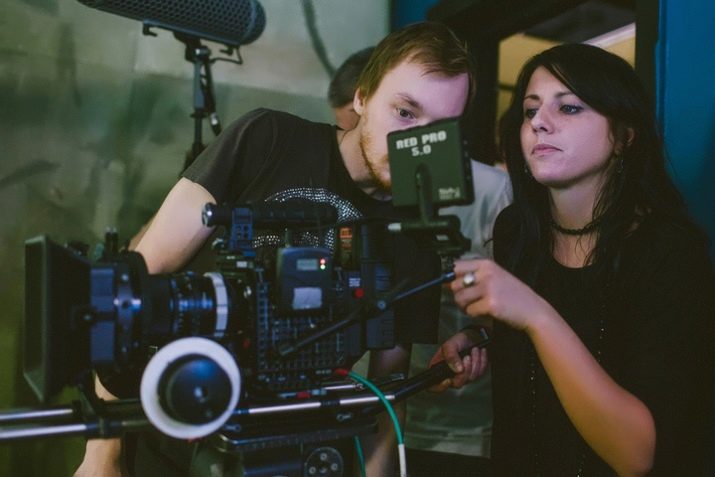
Overview of theater specialties
It is known that a variety of performances are staged in various theaters. Theater can be, for example, dramatic, operatic or artistic. This or that production is created with the help of dozens of people. Most of the theatrical professions require appropriate specialized education. As a rule, such specialists are trained in institutes and universities related to art and culture.
- Director... One of the most responsible specialties in theater is the director. He must have a specialized education, as well as rich knowledge in the field of art and culture. The director sees the whole picture of the work, building in it the line of behavior of the actors and their play.
- Concerning sound engineer, then this person is fully responsible for all the music in the theater, as well as for the sound effects and musical accompaniment on the stage.
- Production designer creates a mood on the stage, is responsible for the entire creative atmosphere in the team, controls the readiness of the actors, as well as the props, light and scenery on the stage.
- Actors - the hallmark of the theater. As a rule, all actors and actresses in the theater come to work there after receiving specialized education.
- Another important figure in the theater is a person who knows how to change their appearance. Make-up artists help the actors "get used" in their role on stage, creating the right makeup for them. Usually make-up artists are creative people with a rich imagination.
- Prompter - an integral part of the team in the theater, a person with this specialty should help the cast during the performance, especially if someone has forgotten their words, while the prompter does not appear on the stage, remaining in the shadows. Prompter should have competent speech and good diction.
- A specialist like dresser, usually works with a fashion designer. This small team is working on creating stage images. The dresser usually needs to have information about fashion in this or that century and in this or that era of different countries.
- For the scenery, props on the stage of the theater is responsible props.
- Choreographer or choreographer are responsible for the creation of musical numbers in the theater.
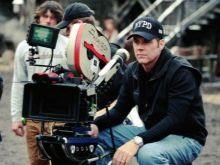


Cinematic professions
Professions related to the film industry, television are represented by no less list than theatrical ones. Let's get acquainted with them in more detail.
- Producer... Perhaps one of the main professions in the film industry. The producer plays a very important role in many projects, because he not only shapes them, but also deals with the financial part, as well as the artistic one. He selects a suitable scenario, and also fully leads and controls the project.
- Stage director in the field of cinema, this is the main person on the site where a film or series is filmed. Usually this person is the author of the project, he also oversees the activities of the actors and other members of the film crew.
- An important figure in cinema is screenwriter, who is engaged in the creation of scripts for future films.
- As for the acting workshop, it includes actors and actresses, just like in the theater. Actors are of the first and second plan, and there are also members of cameo roles, who only occasionally appear in the frame. There are also known extras actors, they do not always have a specialized acting education.
- Stunt doubles and stunt doubles in the cinema, they are also very important figures, because they replace actors to perform all sorts of scenes. Stuntmen, on the other hand, often play in scenes with dangerous stunts.
- Director of photography has great powers on the set, on his shoulders lies a very responsible job of developing the artistic and color scheme of the film. He works closely with the director, choosing the appropriate locations for the future film. There is often a photographer with them in the group, fixing the very locations.
- Cameraman captures the necessary process on the camera. This person must have an appropriate education, as well as nerves of steel when working with actors. It is very common to record multiple takes of the same scene.
- In the cinema, as in the theater, they definitely work costume designers, make-up and makeup artists, as well as specialist decorators.


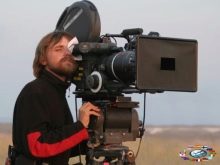
In addition to the above-described specialties in the film industry, there are a lot of assistants and consultants, as well as various technicians and mechanics on the site, helping to resolve issues with various equipment.
Other options
There are also some little-known film-related professions that few people have heard of.
- There is such a profession as film critic, it means a narrow-profile direction. Film critics can write reviews as well as critics, as well as work as film consultants and even teach. Film critics usually have extensive knowledge of the film industry and film history.
- Film distributors... Usually this is a company or a proxy who takes responsibility for the rental of the film. They help to promote the film project to the masses, for example, through cinemas.
- Film critics - these are the people who review films, they express their opinion about this or that work, which significantly affects the rating of the film or series in the future, especially if the film critic is well-deserved.
- Props play an important role in cinema, but few people know about them. Usually these people can imitate any surface on the scenery.
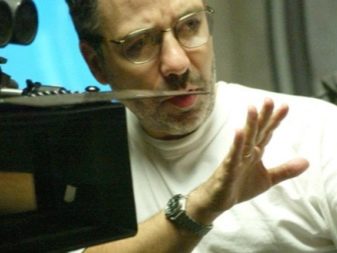
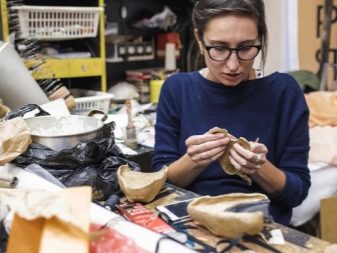
Features of training
To work in the film industry, you have to study in your specialty. And it's usually not about simple courses, but specifically about specialized education in colleges and universities. In addition to the theoretical base, it is very important to have practical skills, which are key in the work of theater and cinema, especially in such specialties as a director or producer. In an educational institution, you will have to painstakingly learn science and without fail to take subjects, practice as much as possible, attending, for example, rehearsals in theaters or coming to the set. Of course, getting to rehearsals and shooting is not always possible, usually only very smart and talented students are invited there.
Stuntmen, for example, very often have education in the field of culture and sports, the latter they need to perform complex stunts. Depending on a particular specialization, a professional may need more than one education, but even several.
So, in the theater team or on the set, his knowledge will be appreciated even more.










